Community

I wasn’t really expecting painful things to happen to me.
I knew that pain was a part of life, but — thanks in part to a peculiar blend of “God-has-a-plan” Southern roots, a suburban “Midwestern nice” upbringing, and a higher education in New England stoicism — I managed to skate by for quite some time without having to experience it.
After a handful of traumas in the last five years, things look different now. Trauma upends everything we took for granted, including things we didn’t know we took for granted. And many of these realities I wish I’d known when I first encountered them. So, while the work of life and healing continues, here are ten things I’ve learned about trauma along the way.

Last Thursday, as I carefully navigated my way home from work on the slippery streets of a few Chicago suburbs, I was listening to a talk radio program. The host reminded his listeners that he broadcasts from sunny Arizona, and then he said, “I know that many of you have had large amounts of snowfall. I recommend that you sit back and enjoy the beauty of the snow.”
At which point I yelled some expletives about what he could do with his recommendation and promptly changed the station.
It’s been a brutal winter. Indeed, we’ve already had “large amounts of snowfall.” Yesterday in Chiberea (that’s an amalgamation of Chicago and Siberia, for those keeping score), the high was negative 13 and today the high will be positive 3. Yay for staying positive, Chicago.
Staying positive about the weather is becoming more difficult. The snow, while pretty, will be here from late November to early March. It. Gets. OId. And schools have been canceled for two days in a row. Listen, I love my kids, but they’ve been stuck inside for the past five days. We are all experiencing cabin fever.
But there’s one thing about Chicago winters that I can appreciate. The relentless snow and the extreme cold provide an opportunity to build a sense of community. Neighbors suffer through this weather together. We check in on one another to make sure people are surviving and staying warm. And, of course, we create a sense of community by uniting against the weather. The snow and the cold become our common enemy. Or, as René Girard’s mimetic theory puts it, the weather has become our scapegoat.

MARIE-LOUISE IS a 34-year-old single mother of three living in Bujumbura, the capital of the southeast African nation of Burundi. When she was 15 years old, she joined a rebel movement during the civil war in her country. “Following my demobilization,” she said, “my family welcomed me back warmly, but my neighbors did not think much of me. I still go around with a firearm ... Even my old friends find it hard to trust me. I have been branded because I am a female ex-combatant.”
Around the world, several armed conflicts are showing signs of winding down, at long last—there is renewed hope that the M23 rebel group in the Democratic Republic of Congo will stop fighting; the government and the FARC rebels in Colombia are making progress in negotiations toward peace after 65 years of civil war; the Philippine government and the Moro Islamic Liberation Front have agreed on a pact to end the fighting.
These events bring into focus the tremendous challenge of reintegrating former combatants into society. The process is especially difficult when they have been forced to commit atrocities against their own people. Think of Guatemala, Sierra Leone, and Cambodia, to name just a few.
The unique characteristics of each conflict make generalizations difficult, but in the stabilization and peace-building process, attention must be given to a complex of transitional justice issues, such as truth-telling and accountability for human rights violations. Other important factors include disarmament, the reintegration and rehabilitation of former combatants, security sector reform, economic justice and jobs, gender equality, the impact of the armed conflict on children (including child soldiers), and the political context.
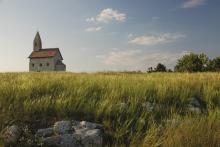
In a secularized society obsessed with consumerism, entertainment, and modernization, Christianity is often portrayed as being old-fashioned, irrelevant, and useless, but it still serves some very valuable and profound purposes. Here’s why Americans still need it:
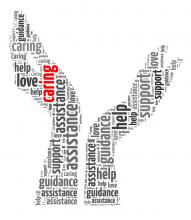
THERE ARE DAYS, to tell the truth, that you just have to wonder if it’s worth it to try to live in community. It’s sort of like marriage and family life: It’s a great idea, but the reality requires more blood, sweat, and tears than anybody ever told you about ahead of time. And sometimes you just wonder.
You stir a soup pot, and it seems there are always more hungry people at the door. You open the shower line, but more hot, sweaty, dirty bodies appear the minute you’ve finished. You visit the prisoners, but for every visit there are five more unaddressed needs. You work to devise strategies to stop the death penalty, and the state just sets another execution date. You sit down to pray, but the cacophony of your thoughts and feelings won’t lie still long enough to get through a simple “Lord, have mercy on me, a sinner."

This morning at breakfast, I was reading an article in the newspaper about how the Affordable Care Act is negatively affecting some individuals — especially those who buy their own insurance, rather than receiving it through an employer. The article was interesting, but what struck me the most was the way the problem was framed. Rather than approaching the story from a public policy angle, the article mainly focused on the reaction of consumers of health-care goods and services. The crux of the article was whether some individuals should be required to buy a product they might not want or need so that other individuals could have affordable access to health-care products they need desperately but might not be able to afford under the old regime.
The dilemma was presented as a story of tension between healthier consumers and less healthy consumers fighting to get the best deal for their health-care dollars. But could there be another way of thinking about health care, and about our society as a whole? Is there a framework that would allow us to consider these questions in a way that assumed connection, caring, and community between individuals, rather than the zero-sum competition of the market?

I love October. As a teacher, it was that time of year where rhythms were becoming established and the seeds of learning were beginning to sprout. In ministry, it is the time where I find myself riding the waves of my student’s school schedules in an effort to connect and converse. In either case, education, shapes not on the schedule of my life but the purpose.
As I breathe in the crisp autumn breeze, it reminds me to consider the larger partnership between the educators and the church. When we, as ministers and church leaders, consider what role education plays in the life of the church, we have to consider the active part of the church in the education of not only the church community, but its larger context.
Education, in the public context, is a constant topic of political struggle and strife. Education, in the ecclesial context, in its best is in-depth Bible study and at its worst is education by osmosis and observation. What is the call or consideration of the church to the topic of education? What role does the church have in the education of the community?

I can’t count how many times I’ve heard people within mainline Christian churches note that, though they don’t embrace all of the theological positions of their evangelical sisters and brothers, they are impressed by their aptitude for organizing and affecting change on a large scale. At the same time, I see thousands converge at festivals like the Wild Goose festival in North Carolina, feeling both fed by the invigorating sense of community, but also frustrated to be leaving with the still unanswered question:
What do we do now?
The CANA Initiative, which is a joint collaboration of Brian McLaren, Stephanie Spellers, and Doug Pagitt, seeks to help answer that nagging question. Cana seeks to be the connective tissue that helps hold together communities of faith that share common priorities in addressing the pressing socioeconomic issues of our time.
From their website, “The CANA Initiative brings together innovative leaders from all streams of the faith to collaborate in the development of new ways of being Christian ... new ways of doing theology and living biblically, new understandings and practices of mission, new kinds of faith communities, new approaches to worship and spiritual formation, new integrations and conversations and convergences and dreams.”
Following is an audio interview I conducted with these three key voices in the CANA conversation. We talked about why CANA is needed now, more than ever, and what sort of transformation they hope to affect within the greater Christian body.
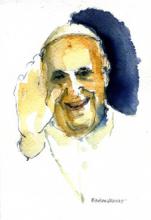
Pope Francis’ comments last week on everything from gays to abortion (less talk, more mercy), the hierarchy (be pastors, not bureaucrats), and religious faith (doubt is part of belief) continue to reverberate through the church and the media.
Here are five broader insights that this wide-ranging interview revealed about Francis — and why they will be keys to reading his pontificate, and perhaps the future of Catholicism.
When the Pharisees heard that [Jesus] had silenced the Sadducees, they gathered together, and one of them, a lawyer, asked him a question to test him. “Teacher, which commandment in the law is the greatest?” He said to him, “‘You shall love the Lord your God with all your heart, and with all your soul, and with all your mind.’ This is the greatest and first commandment. And a second is like it: ‘You shall love your neighbor as yourself.’ On these two commandments hang all the law and the prophets.” —Matthew 22:34-40
FAITHFUL PEOPLE are often stubborn people. Cambodian Buddhists are no exception. Truth-seekers in Cambodia sometimes spend a year living as beggars. They walk from village to village, trying to avoid the millions of remaining land mines. Their only possessions are a bright orange robe and a beggar’s bowl. After the ravages of Pol Pot and the Khmer Rouge regime, which dismantled community trust one forced-labor camp at a time, one might think the Buddhists would write off this ancient tradition, for no other reason than that it is grounded in the blind trust of perfect strangers. But faith, as Jesus taught, needn’t be any larger than a mustard seed. No regime, regardless how brutal, can eradicate faith.
This Cambodian Buddhist tradition of giving your entire well-being over to a community of strangers is one that has something to say to those of Christian faith. Giving yourself over to poverty, over to those who don’t know you from Adam, must change a person. After spending a year as an intentional beggar, as theologian Barbara Brown Taylor notes, you’d be hard pressed to differentiate yourself from all those “others” we tend to pity, fear, admire, or despise.

Last night, my wife Janny and I had the honor of sharing a table with a gathering of local Muslims for an Iftar meal. It is currently Ramadan, which means the Muslim community around the globe fasts everyday day from sunrise to sunset. No food. No water. No tobacco. No sex. Each night they have a celebration feast to break their daily fast called the Iftar meal. It is sacred, joyous, and a time to sit with those they love to worship the One they love, Allah (which is simply the Arabic translation of God).
It was into that sacred gathering that they expanded the table and pulled up a seat for us and a few other Christian and political leaders throughout San Diego. Their hope was simply to create space in their daily practice for their neighbors to experience life with them. They were both acknowledging city leaders who have been proactive in creating an environment of dignity and mutual relationship, and creating a space for new/renewed understanding of one another. Acknowledging our core faith differences, they made clear that it should in no way detract from our ability to share a common vision for the good of our city. We are neighbors who live, work, and play on the same streets with a common desire to see deep, charitable relationships, sustainable economy, and mutual understanding and a celebration of diversity.
As I often say, as followers of Jesus, we have no choice but to move toward relationships with those who are marginalized, dehumanized, and in need of love. We don’t compromise our faith by hanging out with people we may or may not agree with. No, in fact, we reflect the very best of our faith.

Have you not known? Have you not heard? Has it not been told you from the beginning? Has it not been told you from the foundations of the earth? You shall have a song and gladness of heart.
Or something like that.
I have been talking to a friend lately about the nature of achievement. We have been talking about money and art and what it means to care for oneself and the concept that human beings deserve to be happy. Or, more accurately, deserve to get what they want. Being happy and getting what you want are not always the same thing. Of course, you knew that already.
THE CONGREGATIONAL HEALTH NETWORK began with a simple request from the largest hospital network in Memphis to a group of local pastors: Help us take better care of your people.
Ten years ago, officials at Methodist Le Bonheur Healthcare were worried that chronic diseases such as hypertension, diabetes, and obesity were threatening the well-being of local residents and sending health-care costs through the roof.
“People in their 20s were coming to the emergency room in end-stage renal failure,” said Rev. Bobby Baker, a Baptist pastor and director of faith and community partnerships at Methodist Healthcare. “That person is going to be using critical care resources for the rest of their life.”
Hospital officials knew something had to change. They wanted to focus on preventive health care—getting people in to see their doctor long before they were in a crisis. So in Memphis, a city where faith remains a powerful force and more than 60 percent of the population has ties to a religious group, they turned to churches for help. It started small, with a group of about a dozen pastors at churches near Methodist South hospital, in the city’s Whitehaven neighborhood. Those pastors recruited church members to serve as liaisons to the hospital, while the hospital assigned staff to work with churches. That small pilot, first called the Church Health Network, began in 2004.
Two years later, Methodist CEO and president Gary Shorb, along with Rev. Gary Gunderson, the former senior vice president for Methodist’s faith and health division, decided to expand the project system wide. That was the only way to make a significant impact on health outcomes, said Baker. “The thought was that it can’t be a pilot, it can’t be a research project—it really has to be broad reaching,” he said.
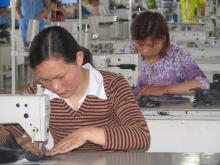
THE APRIL 24 collapse of a garment factory near Dhaka, Bangladesh, killed more than 1,125 people. That tragedy followed a fire that killed 112 last November at a factory making goods for companies including Walmart. According to the International Labor Rights Forum, at least 1,800 garment workers in Bangladesh have died in fires or other factory disasters since 2005. The collapse near Dhaka is the largest disaster in that time and the one that has gotten global attention.
As a Dominican Catholic sister and member of Catholic Scholars for Worker Justice, I approach reflection on such a disaster from the foundation of Catholic social teaching. Each of the social principles below relates to the situation in Bangladesh and challenges us to reflect on our own regard for those who provide our clothing.
- Life and dignity of the human person. Story after story of the people who work in the garment industry shows the lack of respect for workers. Long hours, few to no breaks, prevalent verbal, physical, and sexual abuse, and now the collapse of a factory—do we need any more proof that human life is held in so little regard? Many years ago, Cardinal Joseph Bernardin called for an understanding of “respect life” as inclusive of human life “from womb to tomb.” Our upholding of life must include working toward changing factory conditions so that a debacle such as Dhaka never happens again.

Before we had kids, we loved to travel, had worldview stretching experiences, and were all together creative in how we lived the lives we had been given. For us, having the right kind of experiences meant far more than have the right kind of house, car or, other possession that could be associated with “success.” As we reflect on our development individually and as a couple in the context of marriage, it is clear that these experiences (and resulting relationships) have shaped us more significantly than any classroom or lecture series. It has been the classroom of real life relationships that have formed us into global citizens who follow a Jesus with a global reign.
And then we had kids …

THE FUNCTION of healthy religion and church is to provide individuals and society with a collective container that carries the objective truth of reality for individuals. The Great Truth is too grand and transcultural to be entrusted to the vagaries of individuals and epochs. Otherwise, society becomes a massive runway for unidentifiable flying objects—each claiming absolute validity and turning their subjectivity into the only sacred.
The ground for a common civilization and shared values is destroyed if our religious experience is basically unshareable or without coherent meaning. We end up where we are today: pluralism without purpose, individuation but no community.
REV. SUSAN QUINN BRYAN walked into a meeting of the Friends of the Anna Louise Inn fully prepared for a room brimming with people. Instead, Bryan and the five other Presbyterian pastors she had brought with her doubled the meeting’s total attendance. Bryan was stupefied.
When she moved to Cincinnati in 2005 to pastor Mount Auburn Presbyterian Church, several of her congregants had taken her to the Anna Louise Inn, claiming it as one of the things they loved most about the city. And yet, in its time of need, hardly anyone had come to the Inn’s rescue. It would take several minutes before an even more startling realization came to Bryan.
“As [people] began talking, I thought, ‘Where’s the church? How can the church stand silent while this is happening?’” she said. “So I organized a breakfast and just sent out emails to all the clergy I could find.”
About 25 Cincinnati faith leaders came to Bryan’s breakfast, and out of it emerged an ecumenical force, crossing denominational divides to rally behind one of Cincinnati’s most revered institutions.
THE BATTLE FOR the Anna Louise Inn began in 2007 after Cincinnati Union Bethel (CUB), the social service agency that operates the Inn, decided the Inn needed updated facilities.

Editor’s Note: Jim Wallis’ latest book On God’s Side: What Religion Forgets and Politics Hasn’t Learned About Serving the Common Good is sparking a national conversation of what it means to come together on issues that traditionally divide the nation. Bloggers Adam Ericksen and Tripp Hudgins are having that conversation here, on the God’s Politics blog. Follow along, and join the discussion in the comments section.
Benedict of Nursia is on my mind this morning as I ponder what it is that Jim Wallis is trying to accomplish with his new book, On God's Side. Adam Ericksen pondered the virtues of baseball, winning, and losing in his post from earlier this week. Adam questioned the metaphor. What do we do with our losers? How can we all win?
What would it mean if people of faith began transferring their human identities from class, racial, and national loyalties to a global identity in a new beloved community created by God?
~ Jim Wallis, On God's Side
Today I'm wondering about where Jim was when he started pulling all of this together. Jim shared that he went on retreat (a good practice, in my humble opinion) to gather his thoughts for this new book. He went to a monastery (also a good practice, in my humble opinion). He prayed the hours. He wandered the grounds. He spent some time in silence. He read the Narnia books and gave some serious thought of C.S. Lewis' Aslan. All of this led to a question, well, many questions, but this question I've pulled out is what caught my attention. What if, indeed, Jim. What if we were to do this thing ... the beloved community?
It is no surprise to me that this question would emerge while Jim was at a monastery. Of course it would. And that he riffs on Dr. Martin Luther King, Jr., in a way is also wonderfully telling. "Our goal is to create a beloved community and this will require a qualitative change in our souls as well as a quantitative change in our lives," said Dr. King. Our souls must change. So too must our lives. Dr. King said much about the beloved community. So too did Benedict of Nursia.
There's so much to say here. I'm a little stumped. The beloved community is the Church, but it is exemplified by the monastery where people relinquish their individual control of their worldly goods. Monastics take vows to pray and work together. There's a shared rhythm of life. There is a shared mission. It's a challenging and difficult life, and not all Christians are called to it. Obedience, stability, conversion of life. If we want to be the beloved community, then the we must avow ourselves to such a Rule. Indeed, we must give up our personal or private identities to the service of all.
But how do we do this as a culture, a global church?
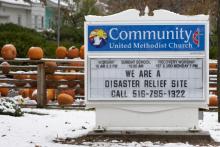
This week marked six months since Superstorm Sandy left entire communities devastated, families homeless, and many with little hope. But in the midst of this natural disaster, many banded together. As is true with many of our nation's tragedies, recent and throughout our history, communities form and hope emerges amid struggle. Sandy taught us about resilience. It showed us what it truly means to reach out, serve, and love our neighbor.
One young filmmaker in New York, Farihah Zaman, caught that resilience and acts of service on video. Here, she shows us how tragedy can turn into a joint effort to acheive the common good.
